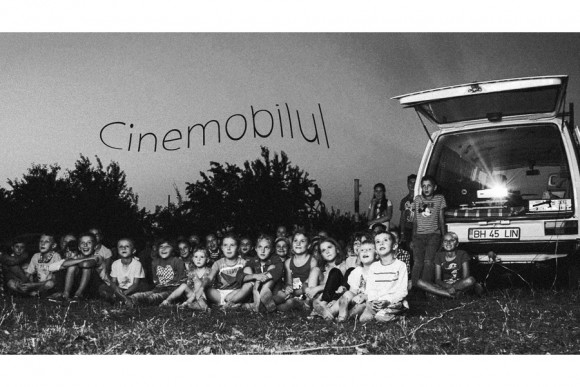Baciu started the film caravan Cinemobile in 2014 and has travelled to more than 25 villages using an old Volkswagen, a screen and sound system bought from crowd funding, and a projector from a sponsorship received from the Romanian National Cinema Center, to present both indoor and outdoor screenings.
Film caravans such as the Cinemobile or the caravan launched by Cristian Mungiu in 2007 when he released his 4 Months, 3 Weeks and 2 Days (Mobra films) in Romanian towns with no cinemas, have their roots in the communist era. In the 1950s film caravans used to travel throughout Romania screening propaganda films in the countryside. Their story was recalled by Titus Muntean in his feature film Kino Caravan / Caravana cinematografică (2009) produced by Libra Film.
Launched four years ago, the Metropolis caravan has reached more than 300,000 people. In July 2016 it will bring 13 titles including European and Romanian films to four towns (Arad, Sibiu, Timișoara and Brașov). The caravan, which is organised by Asociația Culturală Metropolis (founded by film producer Daniel Mitulescu), is using the most advanced open air film projection technology with an inflatable screen and the only mobile digital projector in Romania.
Other caravans are screening only Romanian films such as the Romanian Film Caravan / Caravana filmului românesc, initiated by Asociaţia CineCultura and MDV Audio Studio in 2012. This caravan screens old and new Romanian films, and it also has an educational component for children and young audience.
In order to compensate for the lack of cinemas, Romanian directors started touring their films throughout the country. Cristian Mungiu was the first one organising such a caravan. In 2007 his Palm d’Or winning 4 Months, 3 Weeks and 2 Days traveled 3,200 km and was watched by almost 18,000 people in 31 days.
Romania is also involved in Operation Kino, set up by Transylvania IFF, Sofia IFF, Sarajevo FF, Istanbul FF and Odessa FF. Each festival selects 10-25 feature films, which are screened in neighbourhoods, towns and regions underexposed to quality audiovisual content on the big screen. The initiative is similar to Kinobus in Slovakia, which is focused on the re-vitalization of the village cinema houses in the decentralised regions of Slovakia.




















